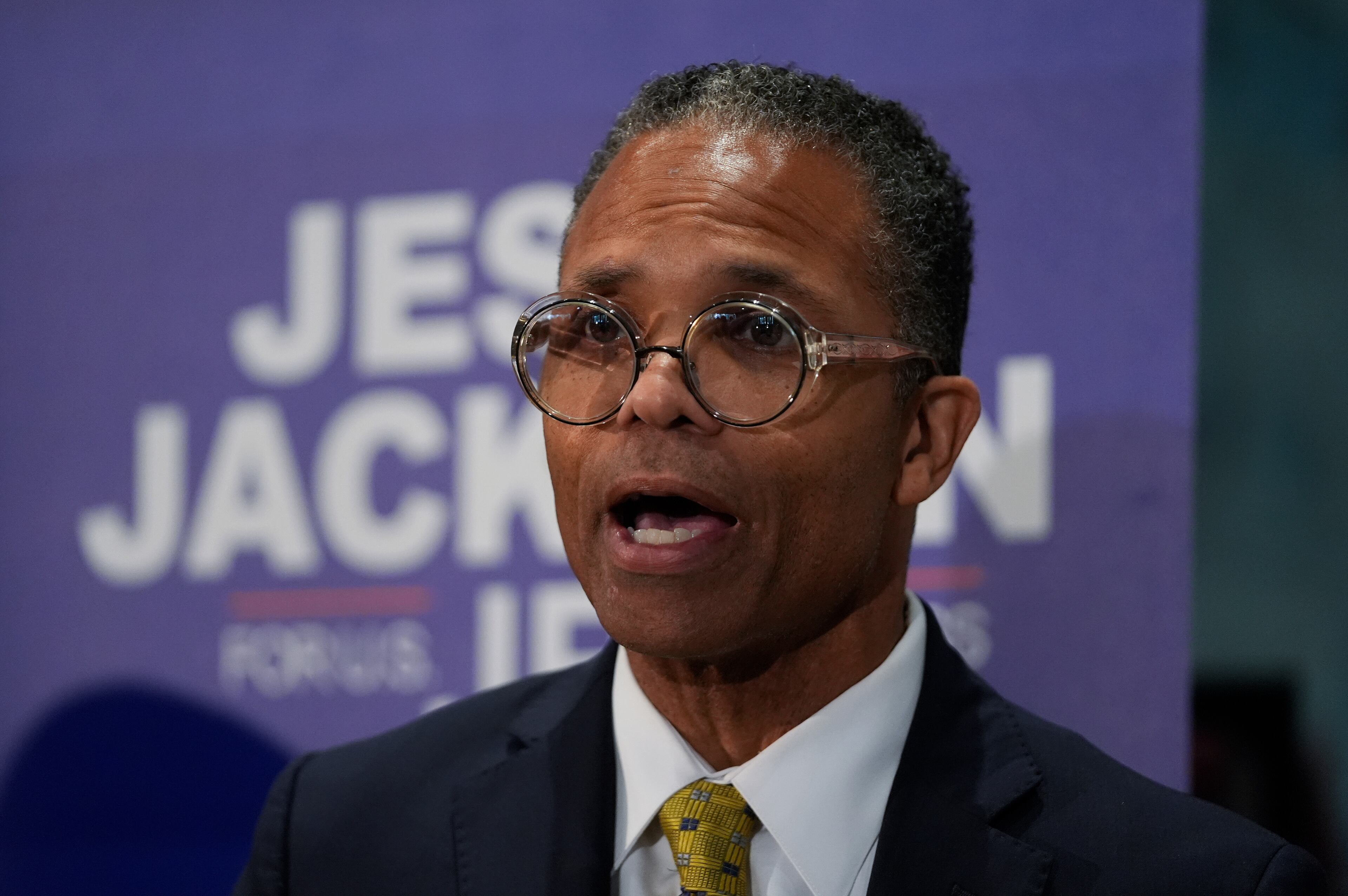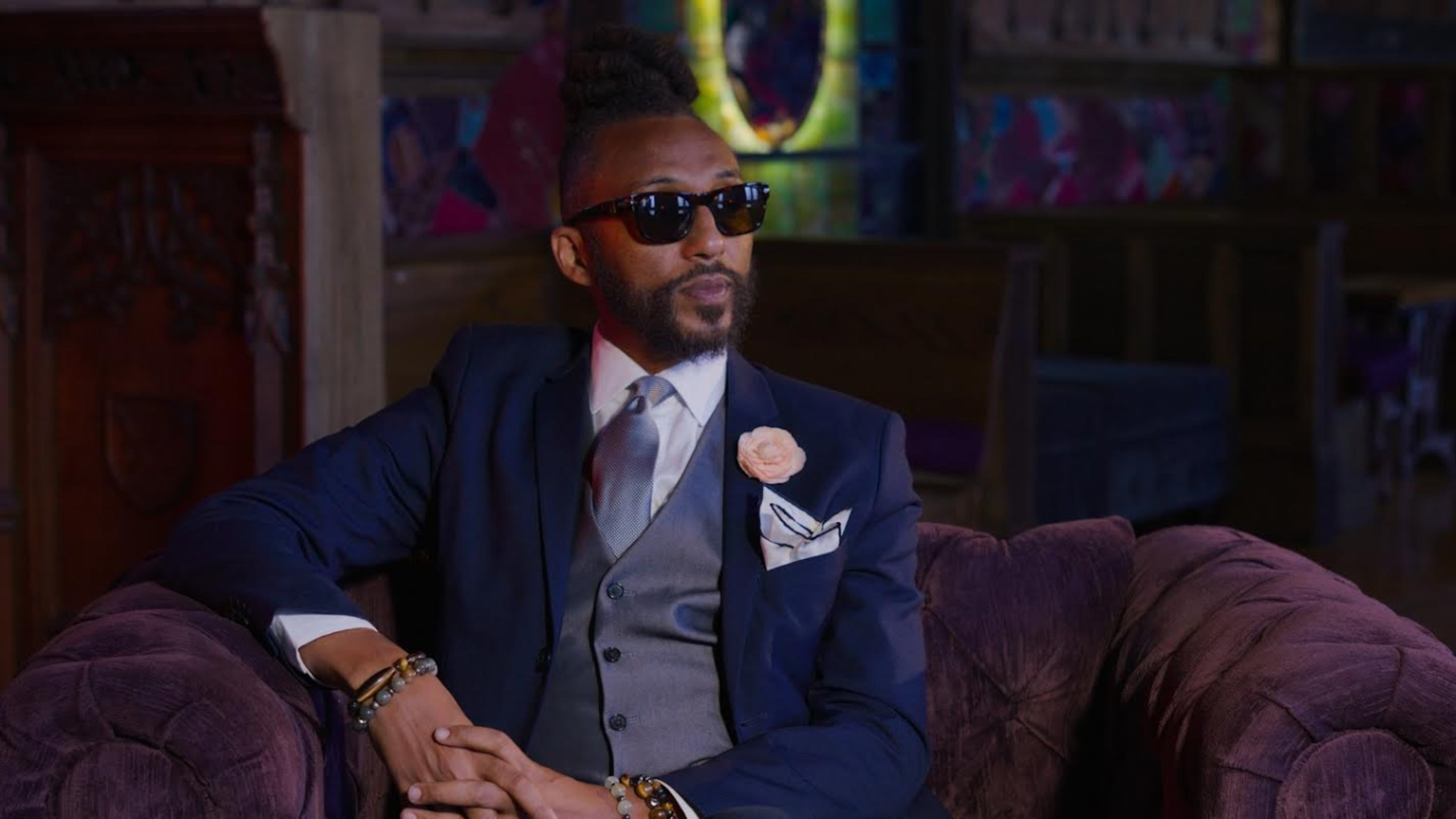
On the morning of Aug. 9, 1994, Jason Orr walked into his office as a Fulton County Tax collector and was greeted with a stack of papers on his desk.
Just days earlier, the 23-year-old part-time promoter had pulled off the biggest event of his life — his FunkJazz Kafé Arts & Music Festival, a concert and food drive headlined by Arrested Development, fresh off a Grammy win.
On his desk, someone had cut out three newspaper articles touting the event. There was also a letter from his boss telling him that although he was meeting his collections quotas, he was still missing too many workdays.
He walked into his boss’ office. The articles were in his right hand. The letter was in his left hand.
“I told him that Friday was going to be my last day,” Orr said. “That was the spiritual push that I needed to go out there. I knew at that point that FunkJazz Kafé was where I needed to be.”
For Orr, each subsequent event was bigger than the previous one. As Atlanta’s music scene was being redefined and exploding in the 1990s and early 2000s, FunkJazz Kafé became the go-to event — even if you didn’t know what you were going to get.
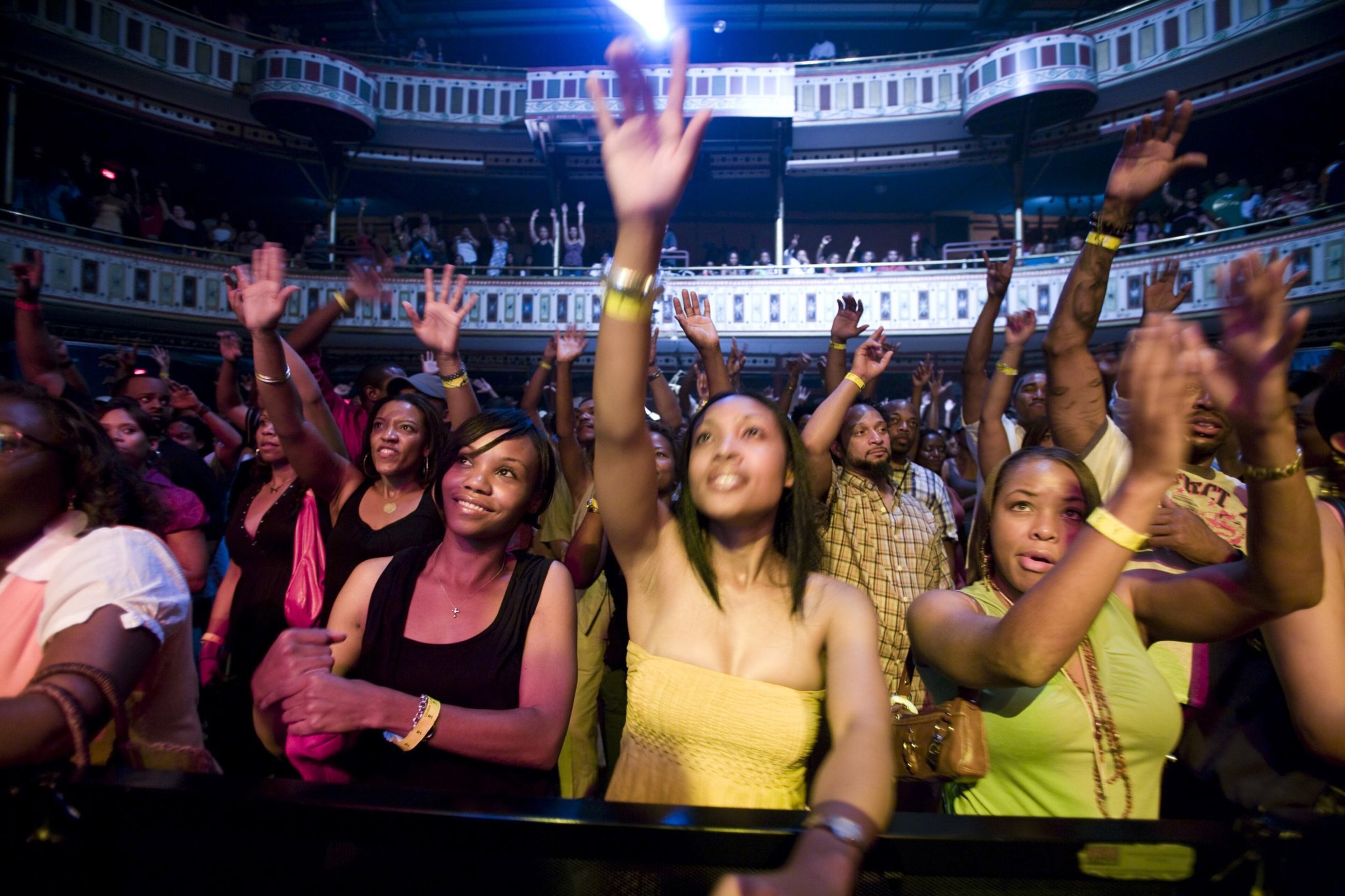
On Saturday, Aug. 3, exactly 30 years after that first event, Orr will celebrate 30 years of FunkJazz Kafé. Things are a little different these days.
Instead of a sprawling arts event, the 30th anniversary will be marked with the screening of two documentaries that dip into FunkJazz Kafé's past, while exploring how Orr wants to expand the event’s brand through other forms of media.
Orr has re-edited the 2004 documentary, “FunkJazz Kafé: Diary of a Decade (The Story of a Phenomenon),” which was narrated by Public Enemy’s Chuck D and features appearances by Cornel West, Jamie Foxx, Dick Gregory, Ray Murray and Dallas Austin.
He will also screen his latest documentary, “Stepping Into Tomorrow: The Story of Jazz Funk and the Music That Changed the World,” which he co-directed with WCLK’s Jamal Ahmad. It features interviews with George Duke, Roy Ayers, George Benson, Bob James, Larry Mizell, Al Jarreau, Ramsey Lewis and Greg Tate.
“It is the easiest form of giving people the opportunity to celebrate with us in a reflective format,” Orr said. “Looking back, people are going to say, ‘Wow, what an amazing time we had.’ But even greater than that, we’re going to show with “Stepping into Tomorrow” how we are making that transition. But, most importantly, we are going to show how it is all connected.”
The brink of extinction
In 1993, Arrested Development won the Grammy for Best New Artist. It was a signal that Atlanta’s music scene was changing, as hip-hop and rap became the city’s dominant genres.
Orr grew up in Atlanta listening to the live music that was coming from the city in the 1970s and ‘80s from groups like Brick, Cameo, and the S.O.S. Band. He was also promoting bands, hosting events and palling around with the city’s young hip-hop stars. And even back then he worried the shift to rap could have a detrimental effect on Atlanta’s live music scene.
“So, by 1994, the soul music market and the R&B market were kind of going extinct. The live stage was turning into DJ booths, so I feared that the music business as a whole would collapse,” Orr said.
“But before it totally collapses, let’s go ahead and set up some things for ourselves in terms of live performance. We come from talent shows, yeek dancing, and teen clubs. There was no way I was going to allow the cultural landscape to dry up.”

About 400 people attended the first FunkJazz Kafé at the Royal Peacock on Auburn Avenue, which Orr conceived as a showcase for his band Vinnie Bernard & Original Man and his house band, which later became “Lil John & The Chronicle.”
Also on the bill that evening were local R&B singers Joi and Laurnea, and a local hip-hop act called Lyrical Giants, featuring an unknown rapper named Bone Crusher. Speech from Arrested Development foot the cost of transporting the donated food, water, and clothing to South Georgia’s flood victims.
Former Atlanta Journal-Constitution music critic Sonia Murray, who covered the early days of FunkJazz Kafé, said the festival hit Atlanta at the perfect time, just as the city’s contemporary music scene was about to explode with acts like TLC and Kris Kross.
But she acknowledged that no real live music scene in Atlanta welcomed and fostered live R&B and hip-hop acts.
“FunkJazz became that occasional, dependable place to see and cheer for the hometown talent, and those around the globe who were paying attention, and impressed,” Murray said.
FunkJazz Kafé was also one of the first events held at the Tabernacle, which served as the event’s de facto home base. At its peak, Orr would throw four FunkJazz Kafé events a year.
“I realized I was a preservation brand. A preservationist promoting cultural sustainability,” Orr said. “I was just showing you what you were missing. We were innovating, weren’t we?”
The mind-blowing business
The great allure of FunkJazz Kafé was always the unknown.
In 1995, at the second FunkJazz Kafé, Meshell Ndegeocello started a trend by showing up unannounced with her bass. At that same 1995 show, just 10 days after dropping their debut album, “Soul Food,” Goodie Mob performed at FunkJazz Kafé for the first time with a live band.
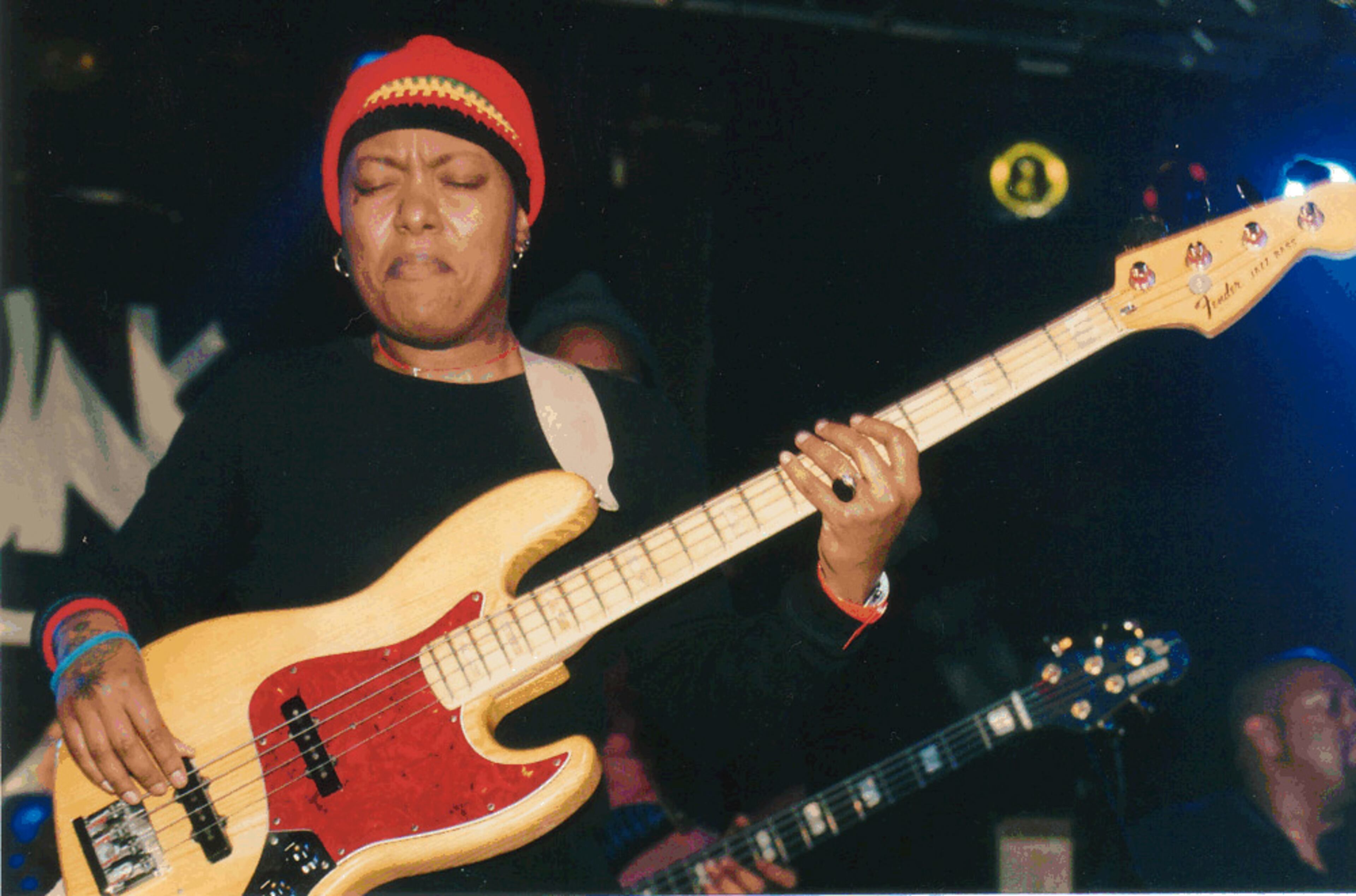
From then on, nobody who attended FunkJazz Kafé ever knew who was going to perform on stage.
“It’s hard to immediately think of a musical event that would draw a capacity crowd of people who had no idea what people would hit the stage,” Murray said. “Which makes FunkJazz’s debut and ascent such a remarkable feat.”
While Orr was able to break a host of unknown acts, the carpeted FunkJazz Kafé stage would also be a surprise showcase for acts like Jill Scott, Bilal, Erykah Badu, Big Boi, Andre 3000, MC Lyte, Cee Lo Green, Doug E. Fresh, Raphael Saadiq, Janelle Monae, Dionne Farris and Van Hunt.

“I was creating a platform for people who were genuinely, organically dope,” Orr said. “I come from a place where everybody is dope.”
Orr, who majored in business administration at Clark Atlanta University, said he was trying to use psychology by creating an atmosphere that people were afraid to miss. It was a feeling, he said, that people might not have had if they knew who was performing.

“If I told you who was going to be there, your expectation level would be to their level of performance, correct? So, this is a psychological thing that I do,” Orr said.
“Look at what you would have missed had you not come. I’m in the mind-blowing business.”
‘Something I had never seen’
In 2000, in what he calls one of his most memorable events, Orr reunited British R&B legends Loose Ends after a 13-year breakup.
Carl McIntosh, the founder of Loose Ends, hails that 2000 performance as a landmark moment — if ever so fleeting — in Loose Ends’ history.
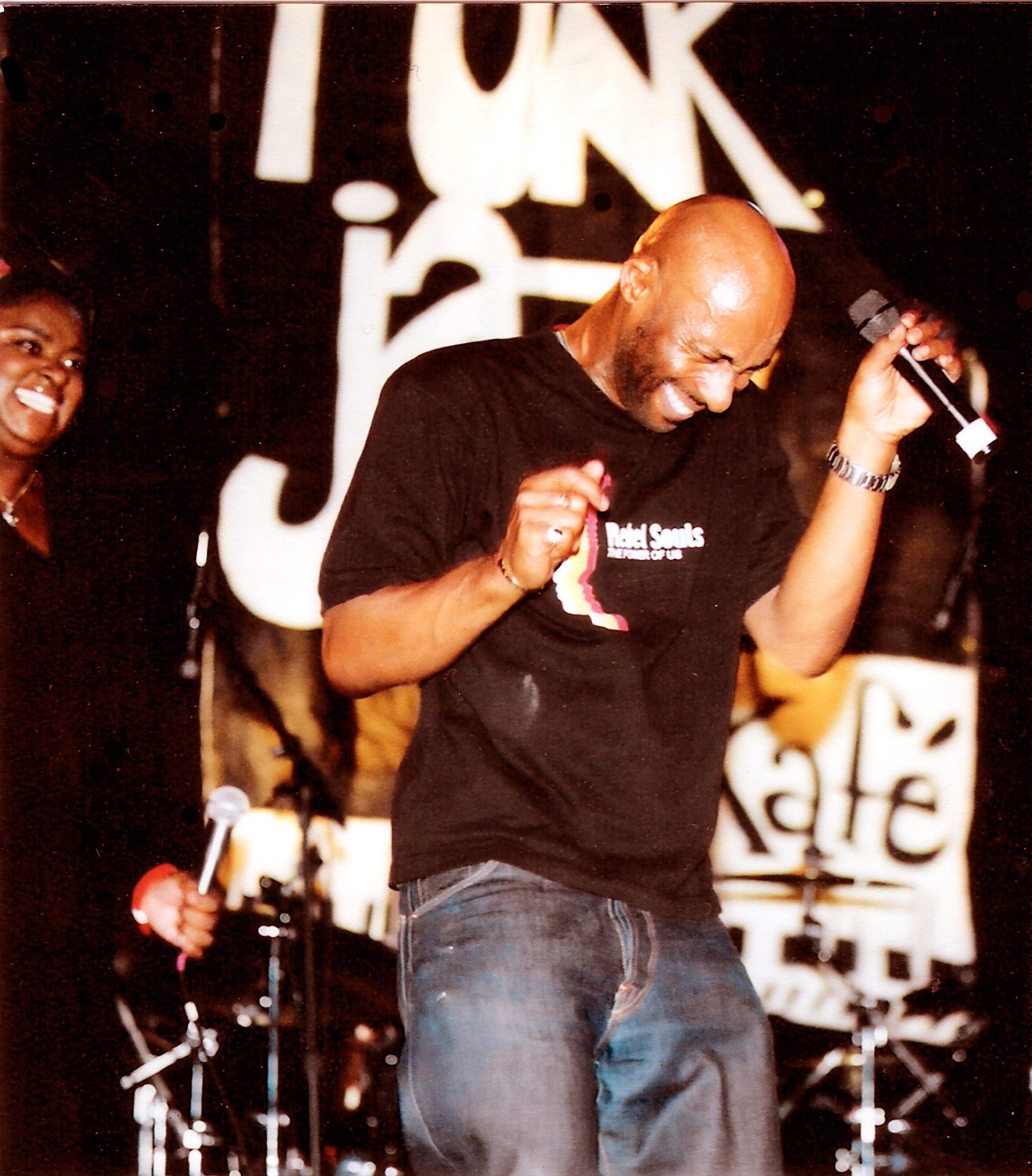
“It was a very exciting time for us because we had not played together in so long,” said McIntosh, who still lives in London. “We were invited to play at an event with no roster and no billing, yet we were exposed to over 4,000 beautiful Black people having a good time. The explosion of artists making art, while you were in the middle of it, was something I had never seen. And I have not seen anything like it since.”
More than a simple concert, FunkJazz Kaféwas a complete visual and aural culture fest
While someone was onstage performing, artists like Fahamu Pecou, Fabian Williams and Amy Sherald would often be painting on the same stage. The sprawling Tabernacle would turn into a bazaar, where models showed off the latest outfits by local designers or roamed the building in body paint.
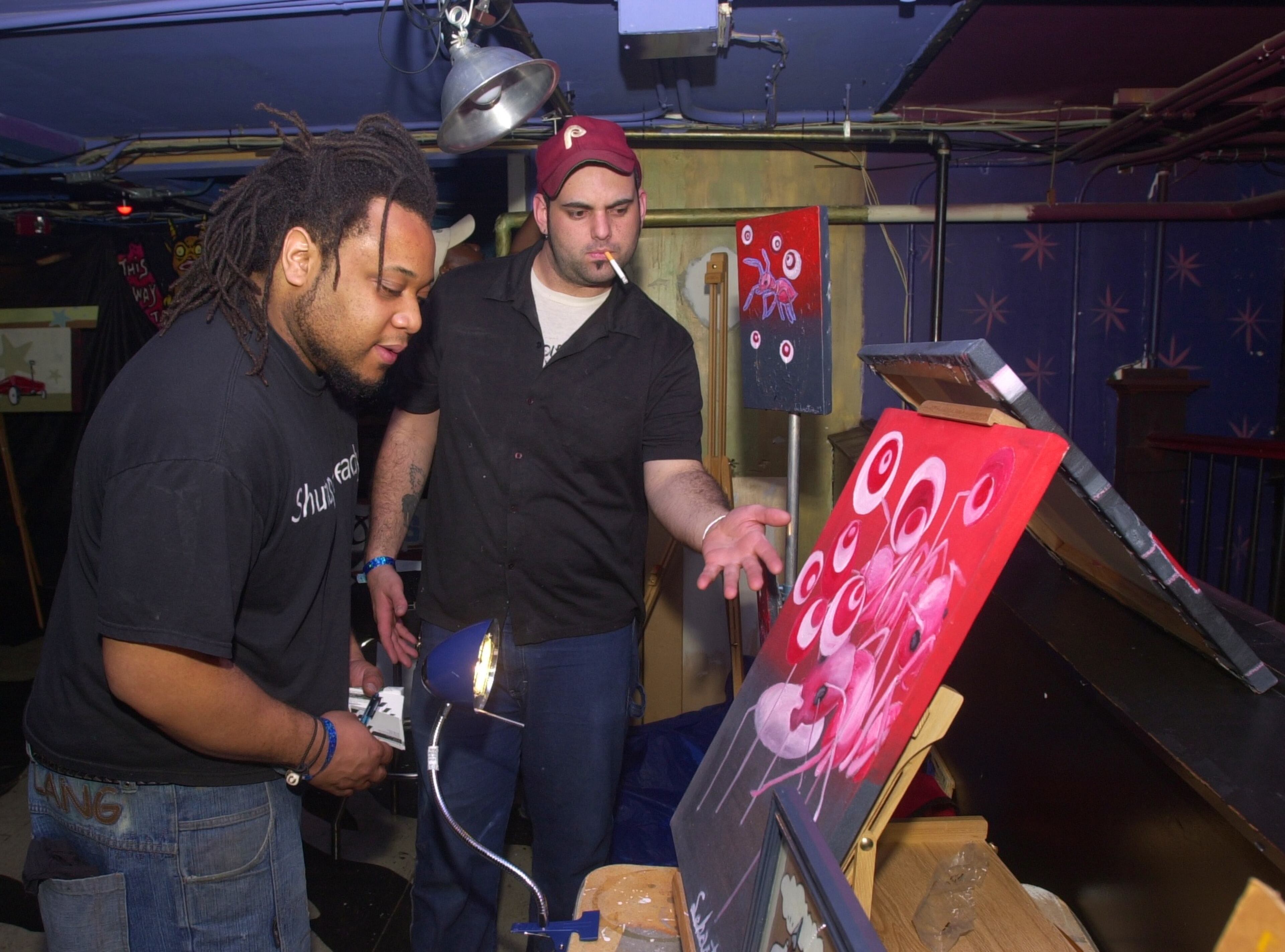
You could get a tattoo, buy handmade jewelry, relax with a massage or facial, get health and wellness tips, or listen to poets and spoken word artists against the smell of incense, candles and shea butter.
“FunkJazz was more about energy than anything else,” Orr said. “Maybe that’s the secret to lasting this long without being compromised by corporations. I’m more for you leaving with an impression and being turned out than me going home and being wealthy from it.”
Stay a little while, child
The last traditional FunkJazz Kafé was held in 2019 on its 25th anniversary. Orr said a day doesn’t pass without someone asking when the next one will be.
“I am always trying to coax Jason into doing more of them,” McIntosh said. “Because it was so creative.”
But Orr has moved on.
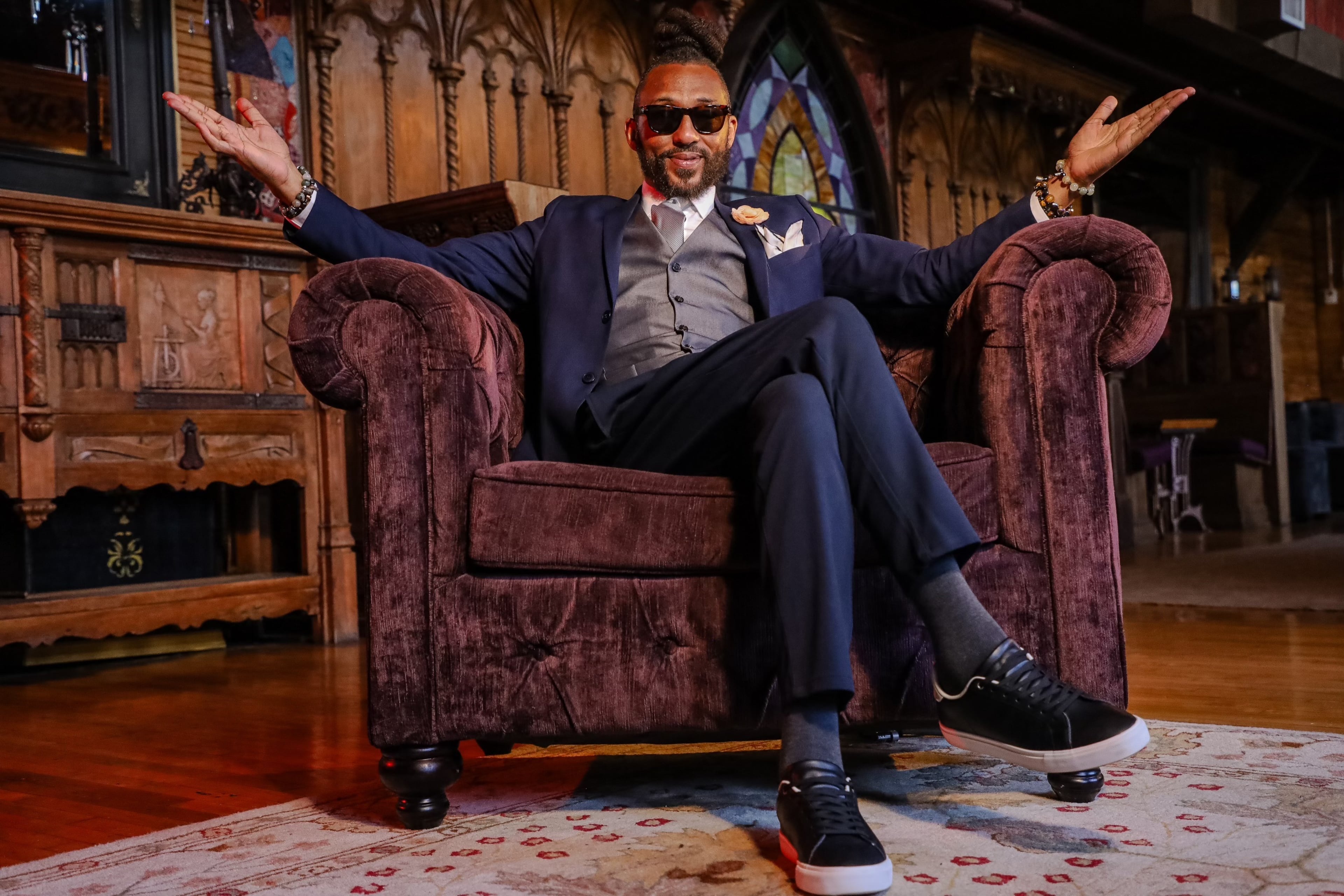
“It’s not going to make economic sense for me to keep doing it in the way I’d been doing it. Sponsorship really has been light since 2000, so why would I single-handedly try to fight that live performance preservation thing by myself?” Orr asked.
“It’s just a difficult fight. It’s hard to stay financed. Everything went up except my door fee.”
Saturday’s anniversary celebration will be held at the Ray Charles Performing Arts Center on the campus of Morehouse College. Tickets are still available, and Orr promises to be at the door — in his black shades, greeting the masses.
“I know I’m a local hero,” Orr said. “And I live in gratitude now because I feel like I’ve accomplished some things.”
Sign up for the UATL newsletter.
Read more stories like this by liking UATL on Facebook and following @itsUATL on X and Instagram.

